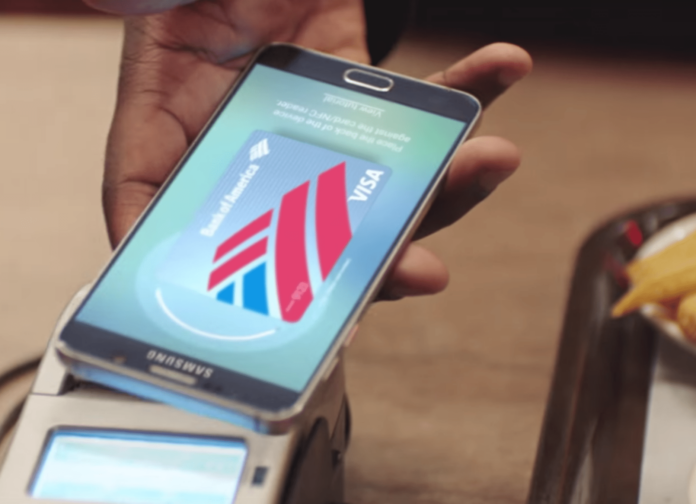Samsung Pay is already available in the U.S. and China
Samsung Electronics launched its Samsung Pay mobile payment service in Spain, marking its first national rollout in Europe. The mobile payment service, which is similar to Apple Pay, is already available in South Korea, the United States and China.
“Our goal with Samsung Pay is to drive and lead innovation in mobile commerce, giving consumers a safer, smarter and better mobile wallet,” said Victor Kim, Samsung Pay’s global director.
“The opportunity for Samsung Pay in Spain is significant, due to the high smartphone penetration rate and the digitalization of the banking sector,” added Celestino Garcia, Samsung Spain’s VP.
Samsung said its mobile payment service uses three different security levels: fingerprint identification; tokenization to encrypt card credentials; and its Knox mobile security platform. To make a payment, users swipe their finger up the screen on a smartphone compatible with the service and scan their fingerprint. The service is said to work at any location with a contactless point-of-sale terminal.
Samsung Pay-ready devices include the Galaxy S7, S7 Edge, S6, S6 Edge and S6 Edge+. The Korean company said the Galaxy A5 (2016) will also support Samsung Pay in the coming weeks.
In Spain, the service is already available for customers of CaixaBank and ImaginBank, and soon expected to be available for Abanca and Banco Sabadell customers. Globally, Samsung said Pay supports credit and debit cards from more than 200 major global and regional banks. In addition, Samsung Pay is compatible with payments networks, including American Express, China UnionPay, MasterCard and Visa, as well as China’s third-party payments platform, Alipay.
Sale of Orange stake not in the French government’s short-term agenda
In other EMEA news, the French government is not currently planning to sale its 23% stake in telecommunications group Orange, Reuters reports citing state holding agency APE’s head Martin Vial. Last week, Economy Minister Emmanuel Macron said the government did not intend to remain a permanent shareholder of Orange Group, though a possible divestment was not on the government’s agenda in the short-term.
In 2015, French public investment bank Bpifrance sold a 2% stake in Orange to institutional investors in a deal worth approximately $880 million.

